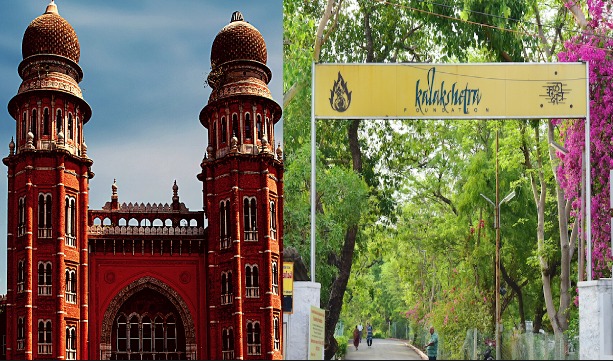
The Madras High Court stated on Monday that it will decide whether to reconstitute the Internal Complaints Committee (ICC) to investigate allegations of sexual harassment against Kalakshetra Foundation faculty.
“I’ve decided to form a committee. We must safeguard the foundation for the sake of the students. The Foundation has a reputable name and a lengthy history. Its name should be maintained for the sake of all the girls who study there and for their safety. We must ensure that the interests of all students studying at/leaving the institute are protected,” the court stated.
The matter has now been listed for April 24 to decide on the ICC issue, among other matters.
Justice M Dhandapani made the remarks during the hearing of a petition filed by a group of students from Rukmini Devi College of Fine Arts, which is run by the Kalakshetra Foundation. The students had approached the court for the establishment of suitable safety regulations and redressal processes in the college.
In December 2022, one of the foundation’s former Directors had made a Facebook post accusing a male teacher of molesting and threatening the students. This prompted many other students to come out with similar allegations of sexual harassment. The students sat on dharna, demanding that the college take action. One of the students filed a police complaint, which resulted in the arrest of a faculty member.
A group of seven students has now approached the High Court seeking stricter safety standards and robust redressal processes. The students also requested for the ICC to be reconstituted with student and parent representatives.
Advocate Anna Mathew, appearing for the petitioner students, claimed that the establishment was not accepting responsibility and had rejected the complaints because the three-month time limit under the Protection of Women Against Sexual Harassment at Workplace Act, 2013 (POSH) had expired.
Mathew expressed concern that students have been subjected to sexual harassment. “The court understands that when these things happen, people don’t immediately talk about it. It takes courage,” she stated.
It was also argued that because underage students were enrolled in the institution, the Prevention of Children from Sexual Offences (POCSO) Act and the CCS (Conduct) Rules would apply. The petitioners contended that, unlike POSH, these laws do not impose a time limit for filing complaints.
The petitioners further claimed that instead of investigating the matter and suspending the accused professor, the university just ignored the concerns.
“The establishment takes no responsibility. They are ignoring the complaints. They are assaulting the complainants. They are putting the garb of conducting an internal investigation. However, there is no suspension. Moreover, he is also honoured on Women’s Day. He was only suspended on the day of his arrest,” Adv Mathew stated.
Though Additional Solicitor General ARL Sundaresan raised strong objections to the claims, the court stated that it was critical to protect the students’ interests.
The court barred the college from taking any adverse action against the students, including the petitioners, who filed complaints and sat for a Dharna against the institution. It further ordered the institute to prohibit the suspended faculty from entering its premises, contacting students, or interfering with the institute’s management.
The court also called for the investigation report of the Tamil Nadu State Commission for Women.
Keeping in view the seriousness of the problem, the court also granted the petitioner students’ interim request to remain anonymous. The court rejected the ASG’s argument that knowing the identity was necessary in order to respond to the charges.




